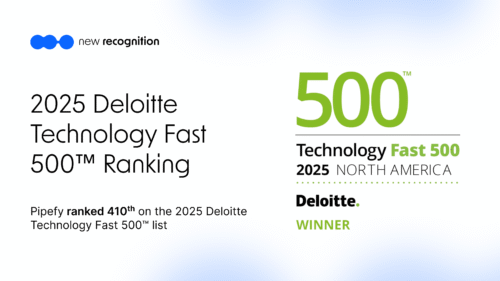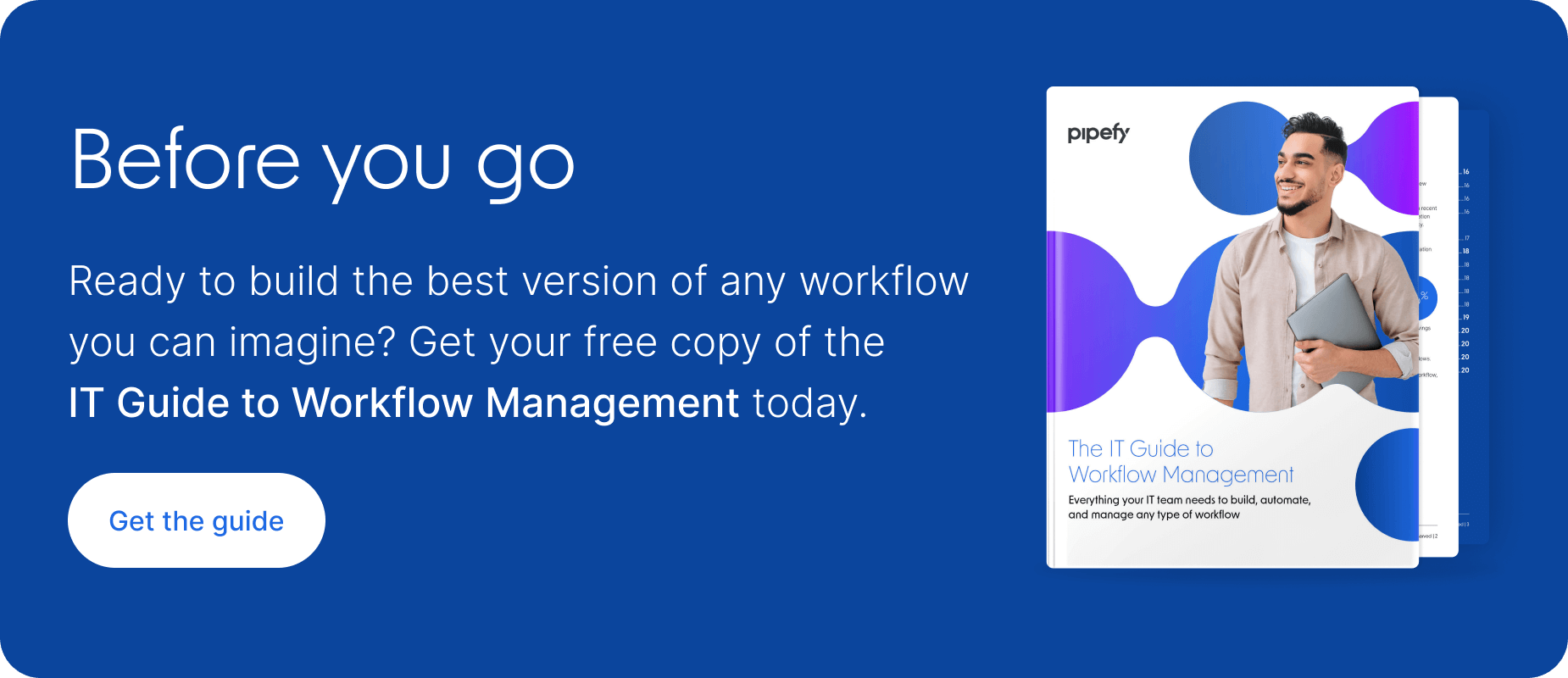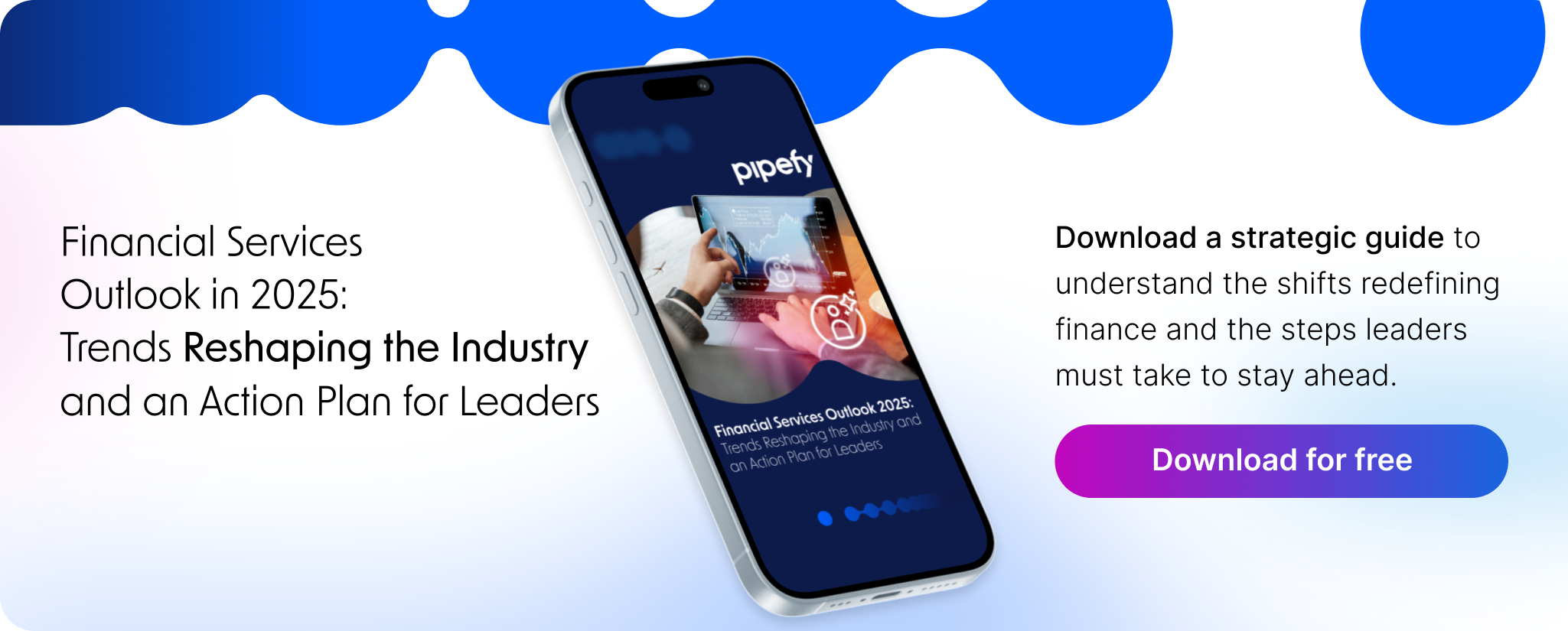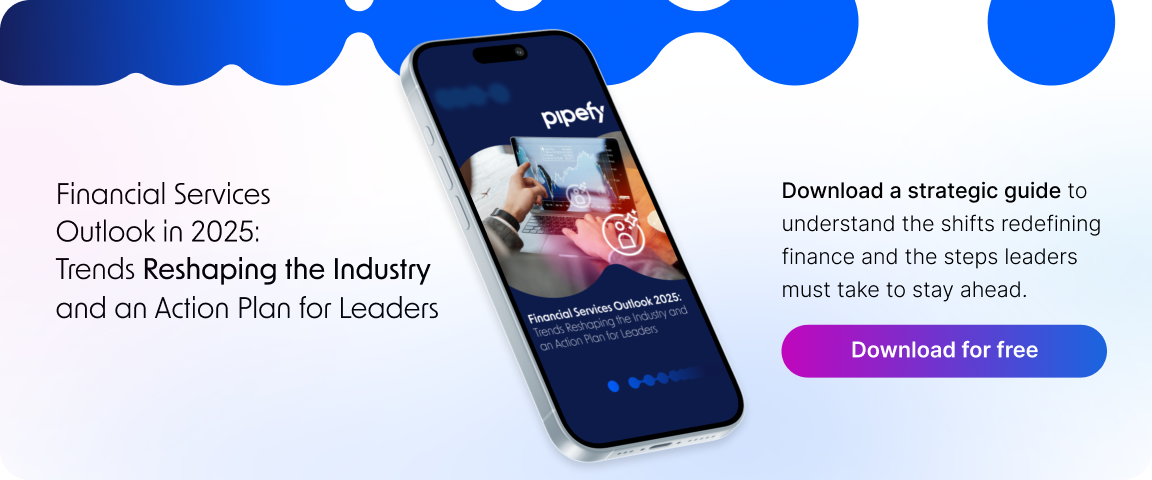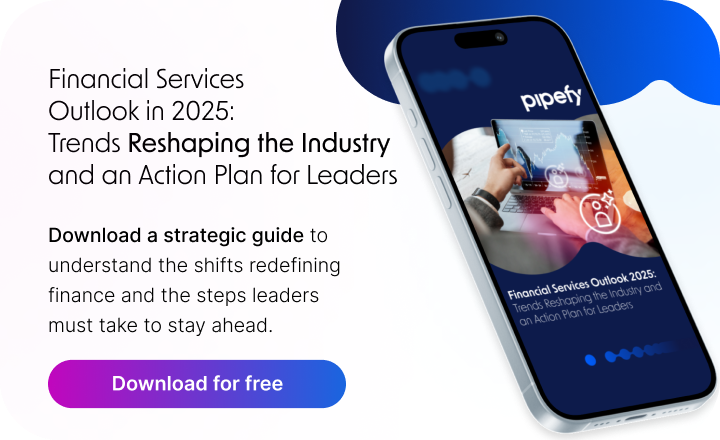
This text was reviewed by Team Pipefy in . Last updated: .
Artificial intelligence is shaping the future of businesses and redefining how tasks are executed. It provides solutions that not only optimize processes, but also revolutionize how complex tasks are handled.
Among the most promising innovations are AI agents, autonomous tools capable of performing tasks intelligently and adaptively.
For companies looking to increase efficiency, reduce costs, and prepare for the future, understanding and implementing AI agents is crucial. Let’s explore what these agents are, how they work, their benefits, and how you can use them to transform business processes.
What are AI agents?
AI agents are autonomous systems powered by artificial intelligence, designed to perform tasks, make decisions, and interact independently.
Using advanced algorithms, machine learning, and neural language processing, these agents continually learn and adapt their behaviors to deliver precise results.
They operate by identifying problems, analyzing data, and executing actions based on advanced algorithms. AI agents can handle various levels of complexity, ranging from simple tasks to highly sophisticated activities.
The advancement of artificial intelligence
Traditional automation has already brought significant benefits to businesses, but AI agents represent a significant evolution.
This was only made possible as a result of decades of technological advancements. The use of Machine Learning, neural networks, and generative artificial intelligence has pushed these tools beyond traditional automation.
While automation performs tasks based on predefined rules, AI agents analyze real-time data, predict trends, and optimize dynamic processes. This adaptive capability makes them ideal for complex and dynamic scenarios where simple automation would fall short.

Types of AI agents
There are various types of AI agents, each with distinct characteristics and applications. Learn more about them:
- Simple reflex agents: Respond to direct environmental stimuli without significant memory or learning capabilities;
- Model-based reflex agents: Use internal models to predict outcomes and make more informed decisions;
- Learning agents: Learning based on previous experiences, improving performance over time;
- Utility-based agents: Evaluate possible actions and choose the one that maximizes desired results;
- Hierarchical agents: Operate at different decision levels, structuring tasks strategically;
- Virtual assistants: Tools like chatbots interact with users to resolve issues or provide information;
- Robotic agents: Applied to physical tasks, such as industrial robots in manufacturing or autonomous vehicles.
Benefits of autonomous agents
Autonomous agents offer numerous advantages to businesses, including:
- Increased productivity: Efficiently execute repetitive tasks, freeing teams to focus on strategic activities;
- Cost reduction: Automate processes and optimize resources, lowering operational expenses;
- Data-driven decision-making: Analyze real-time information for more accurate decisions;
- Scalability: Adjust to increasing business demands dynamically;
- Greater precision: Reduce human errors, ensuring higher-quality results.
How AI agents operate
Now that we understand what they are and their benefits, it’s essential to look at how AI agents function in practice.
How do they work?
AI agents operate in stages: first, they receive a task or identify a problem in the environment. Then, they analyze the available data, use algorithms to make decisions, and execute the necessary actions. Throughout the process, they learn from the outcomes and adjust their behavior to continuously improve.
How to implement AI agents in daily tasks
A successful implementation of AI agents requires careful planning and a structured approach. Here are the main steps:
1. Map your processes
The first step is to map all existing processes within the company. Understand which tasks are repetitive, manual, or time-consuming for teams. Also, identify the processes that have the greatest impact on results and could be optimized with AI agents.
For instance, processes like notifications, data analysis, or request management are excellent candidates for automation. This initial mapping helps prioritize areas that will benefit most from implementation.
2. Plan integrations
Before implementing the agents, it is essential to evaluate how they will connect with the systems and tools already used by the company. CRM tools, ERP systems, email platforms, and project management systems are examples of solutions that can be connected to AI agents to create a more efficient workflow.
Integration ensures data flows smoothly between systems, preventing redundancies and equipping agents with the necessary information to perform tasks effectively.
3. Start with simple tasks
To ensure a smooth transition, start applying AI agents to simple, low-risk tasks. Activities like generating automated reports, responding to FAQs, or project status notifications are great entry points.
This allows you to test and refine the agents’ performance before expanding their use to more complex processes. Additionally, starting small helps teams get comfortable with the technology, building trust in its effectiveness.
4. Expand gradually
After validating results in smaller activities, it’s time to expand the use of agents to more strategic and complex tasks. For example, agents can be configured to analyze large volumes of data in real-time, identify bottlenecks in processes, or even predict market trends.
At this stage, it’s important to clearly define objectives and performance metrics to ensure that the agents are aligned with the company’s goals.
5. Continuously Update and Improve Your Agents
Keep your AI agents updated regularly with recent data—such as customer feedback, market behavior, and changes in internal processes. Reviewing models and datasets often helps maintain performance and ensures your agents continue to support your company’s goals.
No-code tools like Pipefy make it easier for both technical and business teams to adjust agent workflows in just a few minutes. This supports faster testing and encourages wider use of automation across different areas of the company.
AI agents in companies
Adopting AI agents is a strategic move to enhance business efficiency and competitiveness. These tools are transforming how organizations operate, allowing teams to focus on innovation and decision-making.
Why invest?
Investing in AI agents doesn’t mean replacing human work but enhancing it. They take on repetitive and high-volume tasks, allowing employees to focus on creative and strategic activities. Additionally, agents improve accuracy, reduce costs, and provide valuable insights for decision-making.
Practical examples
AI agents are already widely used in businesses to optimize processes and improve results. With Pipefy, for example, AI agents automate workflows, analyze data, and prioritize tasks based on predefined criteria.
A practical example is the automation of approvals: agents can identify pending requests, verify the necessary criteria, and send automatic notifications to the responsible parties, ensuring the process is completed quickly.
Another example is the use of agents for bottleneck analysis. They monitor workflows in real-time, identify steps that are delaying the process execution, and suggest adjustments to improve efficiency.
Additionally, virtual assistants integrated with Pipefy can answer questions from clients or employees, streamlining communication and enhancing the user experience.
Key Aspects of AI Agent Governance
Organizations need to pay close attention to AI agent governance as they start using these systems in their operations. A well-defined method for creating and deploying and monitoring autonomous systems ensures their operations align with organizational values and societal norms. A thorough assessment of several key factors is necessary to achieve effective AI agent governance.
Data integrity stands as the main priority because it serves as the foundation for agent learning operations. The behavior and decision-making processes of AI agents receive their direction from the information provided to them. The use of appropriate data sources requires review to avoid obtaining wrong or distorted results. Continuous systems must exist to evaluate both the quality and relevance of data.
Agent operations need to maintain transparency as a crucial aspect. Advanced algorithmic systems require basic explanation of their decision-making processes to both users and supervisors during critical task execution. Users who understand how agents work develop confidence while receiving better assistance with problem resolution when issues emerge.
Establishing accountability for all actions performed by agents represents an essential requirement. AI agent outcomes require organizations to establish clear responsibility boundaries for their produced results. Organizations need established procedures to handle situations where agents perform below standard or create unforeseen effects. Sensitive application areas require human supervision to continue functioning as a fundamental component.
AI agents require secure protection alongside the data they process. AI systems function as attractive targets for both malicious interference and improper use. Agents require strong security systems that protect them from unauthorized access while preserving information confidentiality and integrity.
AI agent implementation leads to fundamental changes in workforce skill requirements and job responsibilities. Organizations need to train their employees for emerging work tasks and establish strategic methods for managing job function development. The system should build an environment that enables AI agents to enhance human operational capabilities.
Companies can achieve better AI agent implementation by proactively addressing these governance aspects to maximize benefits and minimize difficulties.
Pipefy AI: agents that work for you
Pipefy AI integrates the power of AI agents into an intuitive, efficient platform, allowing companies to intelligently optimize processes. With Pipefy, you can automate tasks, integrate systems, and gain valuable insights to improve your operations.
The union of AI and no-code
A key differentiator of Pipefy is combining AI with no-code capabilities. This allows any employee, regardless of technical expertise, to configure AI agents that cater to the company’s needs.
This makes processes faster, more personalized, and scalable, ensuring consistent results and sustainable growth. In summary, AI agents are a revolution in the business world, and Pipefy is the ideal tool to unlock their full potential!
Ready to transform your processes with AI agents? Discover Pipefy AI and see how it can revolutionize your operations. Book a demo now!

